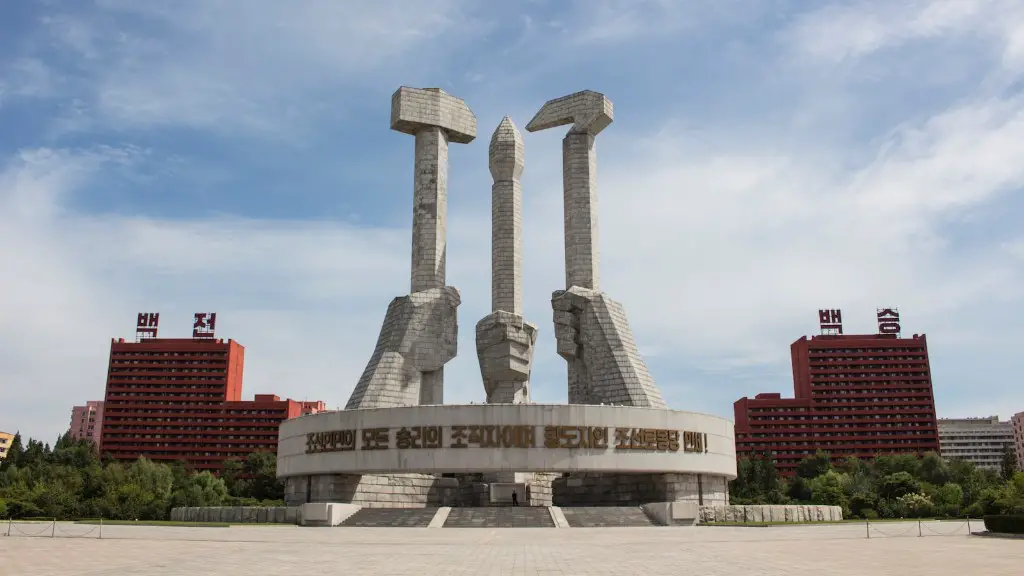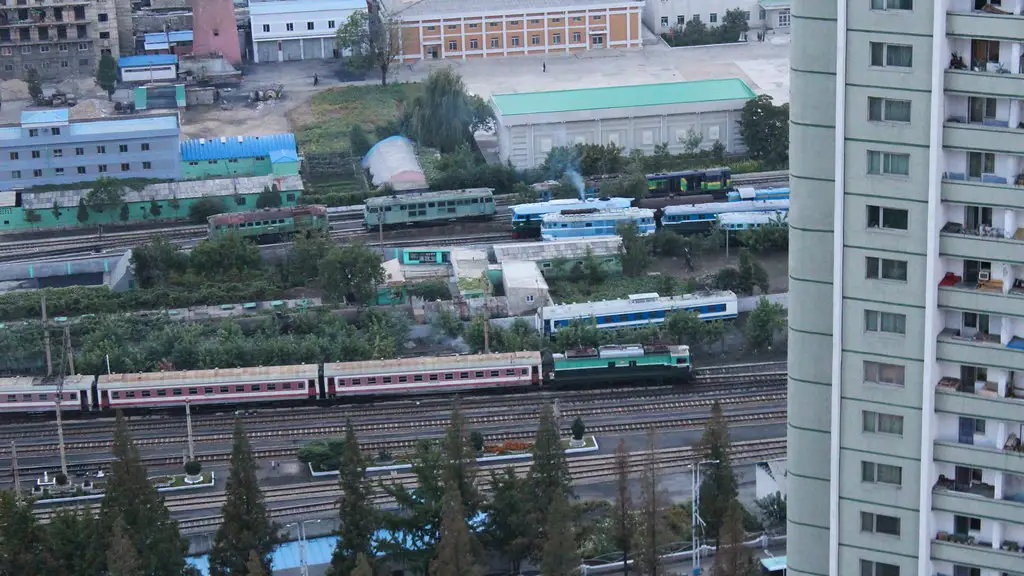North Korea and South Korea: Multiple Perspectives and Complex Causes
When it comes to North Korea and South Korea, it can be difficult to understand why one state is wealthy and the other is so poor. There are a myriad of reasons for this segregation and no single explanation that encompasses the full complexity of the issue.
A recent population survey found that North Korea’s GDP per capita is just under $2,200, while South Korea’s GDP per capita is $39,700. The two economies differ vastly in level of development, resources and public and private sector investments.
Experts point to various elements as primary causes of this type of disparity, including economic and political policies, demographics, resources, infrastructure and the legacies of colonialism and geopolitics.
One of the most important contributing factors is the economic policies of the two states. North Korea’s economy operates under a rigidly controlled, centrally planned system. This system restricts and heavy-handedly regulates the flow of resources and capital, leading to chronic shortages, lower quality of life and limited opportunities for growth.
South Korea, meanwhile, is heavily influenced by neo-liberal capitalist principles, utilizing a market economy and encouraging private enterprise. The country has invested in education and technology, which has allowed its citizens to become more productive and increase their purchasing power. This is evidenced by South Korea’s impressive level of development and high GDP per capita.
It’s also important to note that South Korea has benefited from foreign investment and decades of generous aid from the United States. North Korea, however, has had little outside involvement and has been largely isolated from the global economy.
Addressing demographic factors, the population of South Korea is much younger and better educated than that of North Korea. This allows South Korea to benefit from the innovation and creativity of technology-driven startups, as well as the talents of its able workforce and emerging middle class.
Moreover, South Korea has far better access to natural resources, allowing it to utilize economic maximization through efficient production and harvesting of business. North Korea, on the other hand, suffers from a shortage of resources and infrastructure, restricting their economic progress.
Political Factors
Political instability has also played a major part in the economic disparity between North and South Korea. South Korea operates as a constitutional democracy, which has allowed it to secure foreign aid and investment, enact effective economic policies and attract international talent.
North Korea, on the other hand, is a highly authoritarian state and has been in a state of constant tension with the outside world. Despite its ambitions for agricultural production, the country has failed to improve agricultural yields and the economy remains dependent on imports to survive.
Lastly, the legacy of colonialism has been an immense factor in the North and South’s economic divergence. This legacy of imperialism and militarization has stunted North Korean growth and innovation, while South Korea has rebounded from its turbulent colonial past to become one of the most successful democratic economies in the world.
Income Inequality
It’s worth noting that inequality in the two countries is vast. While the South Korean economy has boomed, the wealth has been distributed unequally. More than half of the South’s population lives in the bottom 25% in terms of income.
In North Korea, the situation is far more dire, with the majority of the population living in poverty. The country also faces a volatile economic situation, with announced plans of reform and reform failures leading to rising prices, inflation and decreased purchasing power.
Human Rights
The human rights situation in both countries is worth examining in the context of the economic disparity. North Korea has been long known for its severe violation of human rights, with millions of its citizens living in poverty, barely able to access basic necessities and with weak or non-existent legal protections.
South Korea, meanwhile, has made substantial strides in guaranteeing basic human rights, with freedom of speech, assembly, worship and labor officially protected. This has further developed South Korea’s economy and bolstered its social and political stability.
Geopolitical Ambitions
Finally, the geopolitical ambitions of the two states cannot be ignored. South Korea is part of an extensive network of international alliances, which provide access to critical resources, technology, and capital investments. North Korea is highly isolated, leading to global economic sanctions and limited economic growth.
The recent power dynamics on the Korean Peninsula have also greatly impacted the two economies. South Korea’s recent efforts to promote inter-Korean peace and cooperation will go a long way towards developing its economy, while North Korea’s commitment to nuclear weapons development has further constrained its growth.
Conclusion
Exploring the economic disparity between North and South Korea leads to a number of conclusions. It is clear that politics, demographics, resources, infrastructure, and geopolitics have all had a significant impact on both states’ economic growth. As such, it is necessary for the international community to understand the complexities of this disparity before attempting to propose solutions.
Environmental Impact
At the same time, it’s important to note that this economic disparity also has an environmental impact. North Korea suffers from severe air and water pollution due to its outdated industry and lack of environmental protection. This has led to resource depletion, soil erosion and deforestation – all of which further contribute to poverty.
South Korea, on the other hand, has made significant progress in the realm of sustainability. The country has invested in urban planning, green technology and renewable energy, which have helped to boost the local economy and reduce their carbon footprint.
Trade
Trade between the two states is another point of consideration. North Korea’s heavily regulated trade policies and sanctions from the international community have greatly restricted North Korea’s economic growth.
Conversely, South Korea has emerged as a major global trading partner, with numerous trade agreements and collaborations with various countries. This has facilitated investment, technology transfer and job creation – all of which have strengthened the South’s economy.
Reform
Finally, reforms in both countries are crucial if there is to be any hope of reducing the economic disparity. North Korea needs to embrace economic reform and open itself up to the global economy, while South Korea needs to focus on fighting inequality and investing in sustainable and responsible growth.
In the end, the North and South Korean economies are undoubtedly complex and multifaceted, with numerous contributing factors that have shaped their diverging economic paths. Despite the many challenges, however, there is hope for a more equitable and prosperous future for both states.





